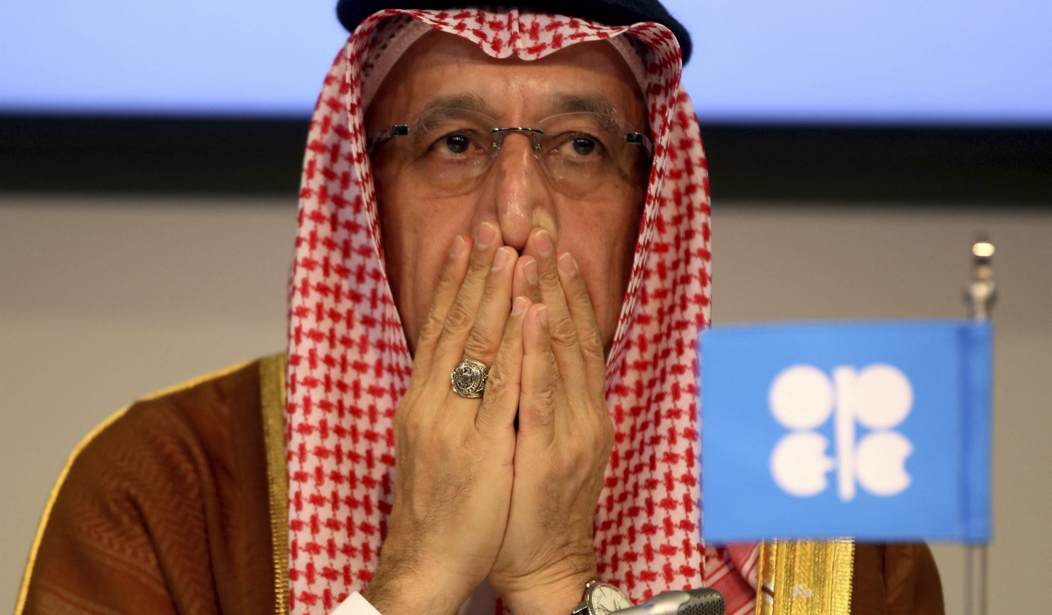The Wall Street Journal is exclusively reporting that OPEC+ is considering increasing oil production. Or it may cut it. Actually, their “exclusive” report is that they don’t know.
I too, don’t know, so the lack of actual knowledge is not so “exclusive.”
Saudi Arabia and other OPEC oil producers are discussing an output increase of up to 500,000 barrels a day, the group’s delegates said https://t.co/RJqFsYMVAC
— The Wall Street Journal (@WSJ) November 21, 2022
The story is a total mess. Lots of “will they?” or “won’t they?” speculation, indicating that a lot of the players involved in sourcing the story behind the scenes are negotiating through the paper as well as in person. Add a dash of wishful thinking likely from Biden officials nudging the Saudis to reward the Administration for protecting the Saudi Crown Prince, and you’ve got an “exclusive” story that leaves us more confused than before.
OPEC oil producers are discussing an output increase, the group’s delegates said, a move that could help heal a rift between Saudi Arabia and the Biden administration and keep energy flowing amid new attempts to blunt Russia’s oil industry over the Ukraine war.
A production increase of up to 500,000 barrels a day is now under discussion for OPEC+’s Dec. 4 meeting, delegates said. The move would come a day before the European Union is set to impose an embargo on Russian oil and the Group of Seven wealthy nations’ plans to launch a price cap on Russian crude sales, potentially taking Moscow’s petroleum supplies off the market.
After The Wall Street Journal and other news organizations reported on the discussions Monday, Saudi energy minister Prince Abdulaziz bin Salman denied the reports and said a production cut was possible instead.
Any output increase would mark a partial reversal of a controversial decision last month to cut production by 2 million barrels a day at the most recent meeting of the Organization of the Petroleum Exporting Countries and their Russia-led allies, a group known collectively as OPEC+.
Uh, what? As a great admirer of the Wall Street Journal’s I am left utterly confused by the first three paragraphs of the story. OPEC+ (which includes Russia) is considering a production boost to offset the loss of Russian oil availability to the West, but they are actually considering a cut to production. Maybe lots of people are spitballing?
The possible increase is a rumor, the possible cut an official statement from the Saudi energy minister. What are we to make of this? People discussing things is hardly news, unless those discussions might affect things.
Who knows? I sure don’t. Something is likely to happen when a policymaking group meets. Something important, because the group is important. These are matters that impact everybody living in the modern and semi-modern parts of the world, although mountain villagers in the Himalayas may not notice. Most of the rest of us will.
But notice what? Apparently the “exclusive” reporting of the Wall Street Journal is something unknown will happen. Their headline says an output increase, but they story casts doubt on it. I can only assume that they wrote the story based upon rumors of the increase, and scrambled to include the Saudi denial.
Talk of a production increase has emerged after the Biden administration told a federal court judge that Saudi Crown Prince Mohammed bin Salman should have sovereign immunity from a U.S. federal lawsuit related to the brutal killing of Saudi journalist Jamal Khashoggi. The immunity decision amounted to a concession to Prince Mohammed, bolstering his standing as the kingdom’s de facto ruler after the Biden administration tried for months to isolate him.
It is an unusual time for OPEC+ to consider a production increase, with global oil prices falling more than 10% since the first week of November. Oil prices fell 5% after reports of the increase and then pared those losses after Prince Abdulaziz‘s comments. Brent crude traded at $86.25 on Monday afternoon, down more than 1%.
Of course we can all hope that oil supplies increase, and hope that the Journal’s original slant to the story is the correct one. I can easily imagine the Saudis trying to squeeze more concessions out of the Biden Administration before grudgingly increasing production, but as hard as the story pushes the idea of an increase, the facts are simply not there as reported.
“After The Wall Street Journal and other news organizations reported on the discussions Monday, Saudi energy minister Prince Abdulaziz bin Salman denied the reports and said a production cut was possible instead.”
Once you include that sentence in the story, it literally tells you nothing except that some people behind the scenes are telling reporters something. That is big news. Wanna-be big shots are blathering, contradicting the actual big shot’s official statement. Could be true. Great. Let’s hope so. But hope is not a news story. Blather isn’t either.
The mystique of the Mainstream Media being deeply serious, carefully reported, and scrupulously edited isn’t warranted. Even the best newspapers print drivel like this, breathlessly labeling it “exclusive!” I literally could have written it with my eyes closed, without even bothering the pick up the phone to talk to anybody.
Exclusive! “Something will happen. Could be good, could be bad.”
All writers have space to fill, and limited time to do it. The result is, too often, stories like this.









Join the conversation as a VIP Member